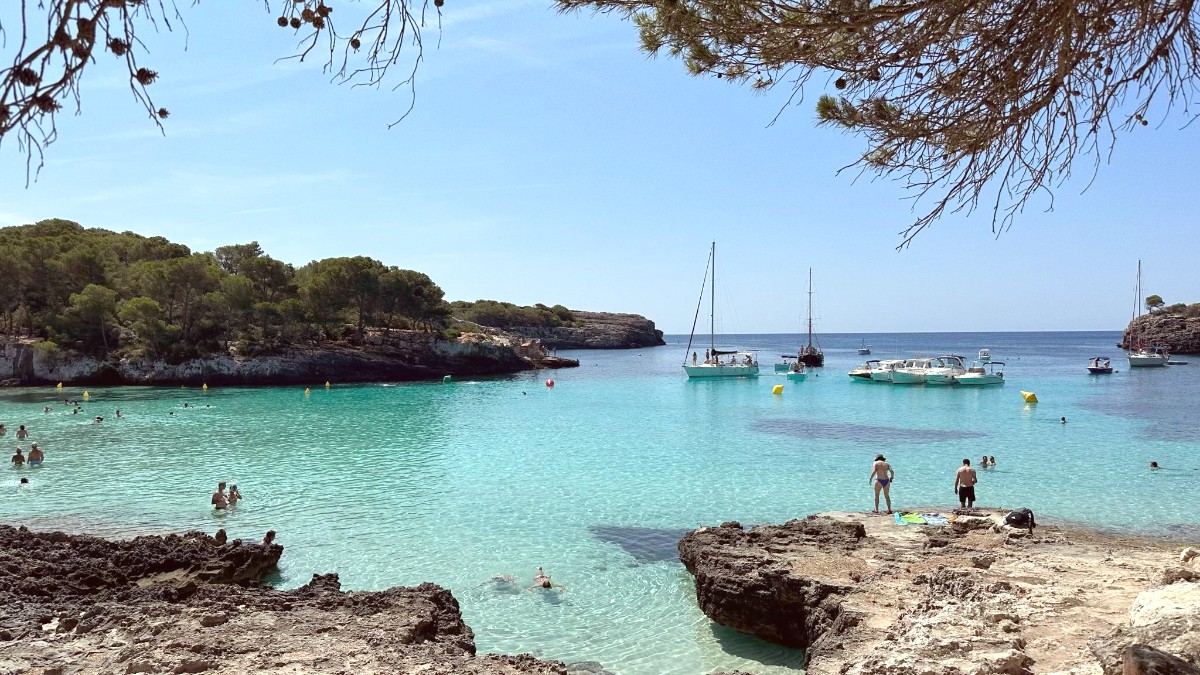
Balearic Islands, Spain
Major Spanish mobile network operators, including Movistar, Vodafone, and Orange, serve Menorca. SIM cards are for purchase at airport kiosks, phone shops in Mahón and Ciutadella, and sometimes at larger supermarkets. A passport for registration.
Prepaid data plans are widely available, quite affordable, and offer generous data allowances. eSIM services (e.g., Airalo, Holafly) are a good choice for many international travelers. These activate before arrival, for immediate connectivity without a physical SIM card. Most accommodations offer free Wi-Fi. 4G coverage exists across the island, with 5G growing in urban areas.
Local operating hours, banking, and holidays. Be aware of seasonal changes.
Shops typically open from 9:30 AM - 1:30 PM and 4:30 PM - 8:00 PM (Monday-Saturday), with smaller shops closing for siesta. Larger supermarkets often stay open continuously. Restaurants serve lunch from 1:30 PM - 3:30 PM and dinner from 8:00 PM - 11:00 PM.
Spain observes national, regional (Balearic Islands), and local holidays. During these times, banks, government offices, and many shops close. Public transport may operate on a reduced schedule.
Show respect for Menorcan customs and traditions for a pleasant visit.
A simple "Hola" is always fine. For formal situations or older people, use "Buenos días." Two kisses on the cheek are common among friends; a handshake for formal introductions.
Swimwear is for beaches. Casual but respectful clothes are suitable for towns and restaurants. Modest dress (covered shoulders/knees) is good for churches.
Tipping is not obligatory. Rounding up the bill or leaving 5-10% for good service is appreciated. (See Budgeting & Costs for more.)
Taking photos in public places is generally fine. For individuals, ask permission. Some museums or religious sites restrict photography. Avoid military installations.
Avoid discussing political topics like Catalan independence unless you know the local's view. The Franco Era remains a sensitive historical period for many Spaniards.
Menorca continues to improve its accessibility, though some older areas pose challenges.
Spain has made efforts for better accessibility, but old town infrastructure with narrow, cobblestone streets can pose difficulties. Newer areas and main roads are generally more accessible.
Some beaches offer accessible wooden walkways or designated accessible points (e.g., Cala Galdana, Son Bou, Punta Prima). Newer or recently renovated museums may offer better accessibility.
Specialized services for tourists with visual or hearing impairments are limited.
Consult local tourist information offices for current information on accessible facilities and services.
Always verify accessibility features directly with hotels, attractions, and transport providers before your visit.
Historic centers have uneven surfaces. Consider this for wheelchair users or those with mobility challenges.
Newer resorts and public transport options generally provide better accessibility.